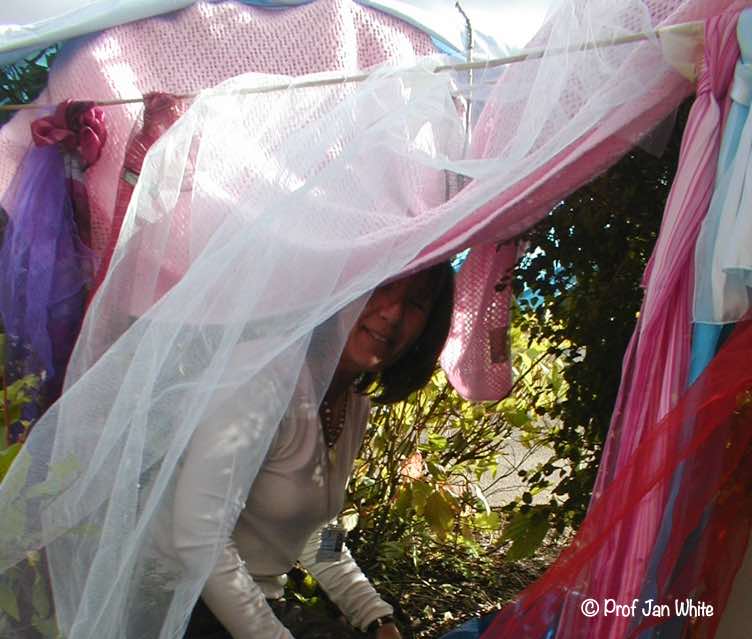Early Childhood Outdoors aims to increase the confidence and competence of the early childhood care and education workforce in working in the outdoors with children from birth to seven, with the emphasis firmly on the day-to-day experience young children have in their early years settings.
This week’s ECO blog post launches an important ongoing conversation around how all of our workforce can become ‘at home’ in working outdoors and with the natural world on a daily basis. Janet Packer, Lecturer in Early Childhood at Barnsley College and co-owner/manager of Growing Wild Outdoor Nursery in Barnsley is championing our drive towards developing, enabling and supporting CPD and qualifications that really meet the needs of providers and practitioners alike.
ECO Development Day 2019 Reflection – Early Years qualifications and training for practicing outdoors
by Janet Packer
The second annual Early Childhood Outdoors (ECO) development day took place in the Showroom in Sheffield in April last year. It was fabulous to have the opportunity to meet so many like-minded people who brought such energy and enthusiasm to the room.
During the discussion group that followed, I sat around a table with the ‘red spots’, those who were interested in discussing training and qualifications and facilitated the conversation on the currency of early childhood qualifications for enabling practitioners to be confident and effective in the outdoors. I was quite overwhelmed by the interest that this topic received.
We discussed the barriers faced by settings regarding staffs’ facilitation of outdoor play, competency of practitioners and quality of pedagogy in settings. It quickly became apparent that there was a need for a new or revised qualification that focused significantly on outdoor practice in early childhood; one that not only equips practitioners with the skills to enable children’s outdoor play, but also gives them the knowledge and understanding to truly recognise the importance and significance of concepts such as nature connectivity, ecological identity or sense of place.

We considered the level of the qualification required, beginning a round table discussion on Level 4, which would build on the existing recommended minimum of a Level 3 in Childcare and Education. This would support an up-skilling of the early years workforce and help raise the profile of early years practice. It was the consensus that this may be too high and that a Level 3 would be more appropriate in terms of need, access, manageability and cost. The style of qualification was also debated, that is whether it should be work or college based. Academics, professionals and organisations all took part.
We would greatly value your views on the type and level of qualification you think would bridge this skills gap, or whether you feel that quality training would be more appropriate. Please leave your comments below.
I very much look forward to this year’s ECO gathering at the Sheffield Showroom on Saturday 28th March, where we can continue the conversation…

With thanks to practitioners in Torfaen and Tameside for the images of training with Jan White many years ago.


This is a growing rumble of interest, and so necessary. Bringing together the academic levels of a foundation level pedagogical underpinning coupled with the essential competency skills , which crucially are practiced outdoors, is the only way to develop the confident, capable and empowered practitioners that children need for these significant early years. And this is no small feat! Controversy reigns as ever as institutions/training companies and consultants seek to claim the version of Interacting with Nature they design, and the marketing opportunities this offers. The variations of Forest school, forest school lite, deep forest school and nature based education are all versions of the same pedagogical ballpark. Often QTS of all denominations want to fast track, already feeling they have ‘qualified’, Early years practitioners want to sidetrack and specialise but without specific modularised courses within academic courses currently available, and the growing interest of universities and colleges in securing apprenticeship national funding will all dilute the skill sets actually required to practice authentically. When I see any course proposing any CPD, upskilling or training around working outdoors with actual children, actual knives and tools and actual fire, online, my heart sinks. Conversion and enhancement of existing skills and knowledge, yes, replacing real life experience outdoors in poor weather and cold fingers, no. We are in danger of recreating the diabolical state that became the dilution of the Level 3 via the NVQ system when over 400 CACHE registered versions (and its varying quality) existed 20 years ago.
There is a mountain to climb with this issue, but such important work, these essential forums are the only way to create the quality and collaborative connections required to consider and create what is actually required for practitioners/pedagogies to do the work needed with authenticity and command.
Hi Toni, thanks very much for this response – you have captured the situation in a nutshell. Of course, we weren’t able to carry on the conversation at our annual professional gathering at the end of March (but now have 20th March 2021 booked for another opportunity). It would be really good to have your thoughts and input as we seek some paths for action – do stay in touch at info@earlychildhoodoutdoors.org. Of course, if you’re inclined, and have time, to write about your thoughts and concerns in a future ECO blog post, I’d be pleased to hear from you! Jan